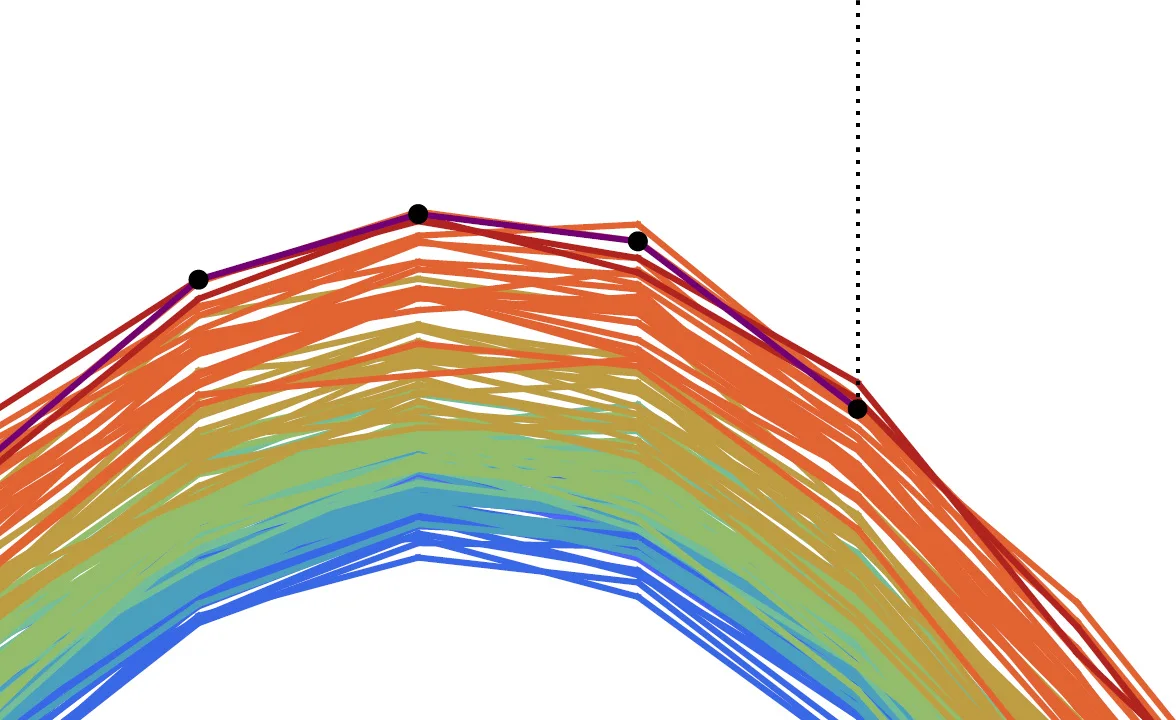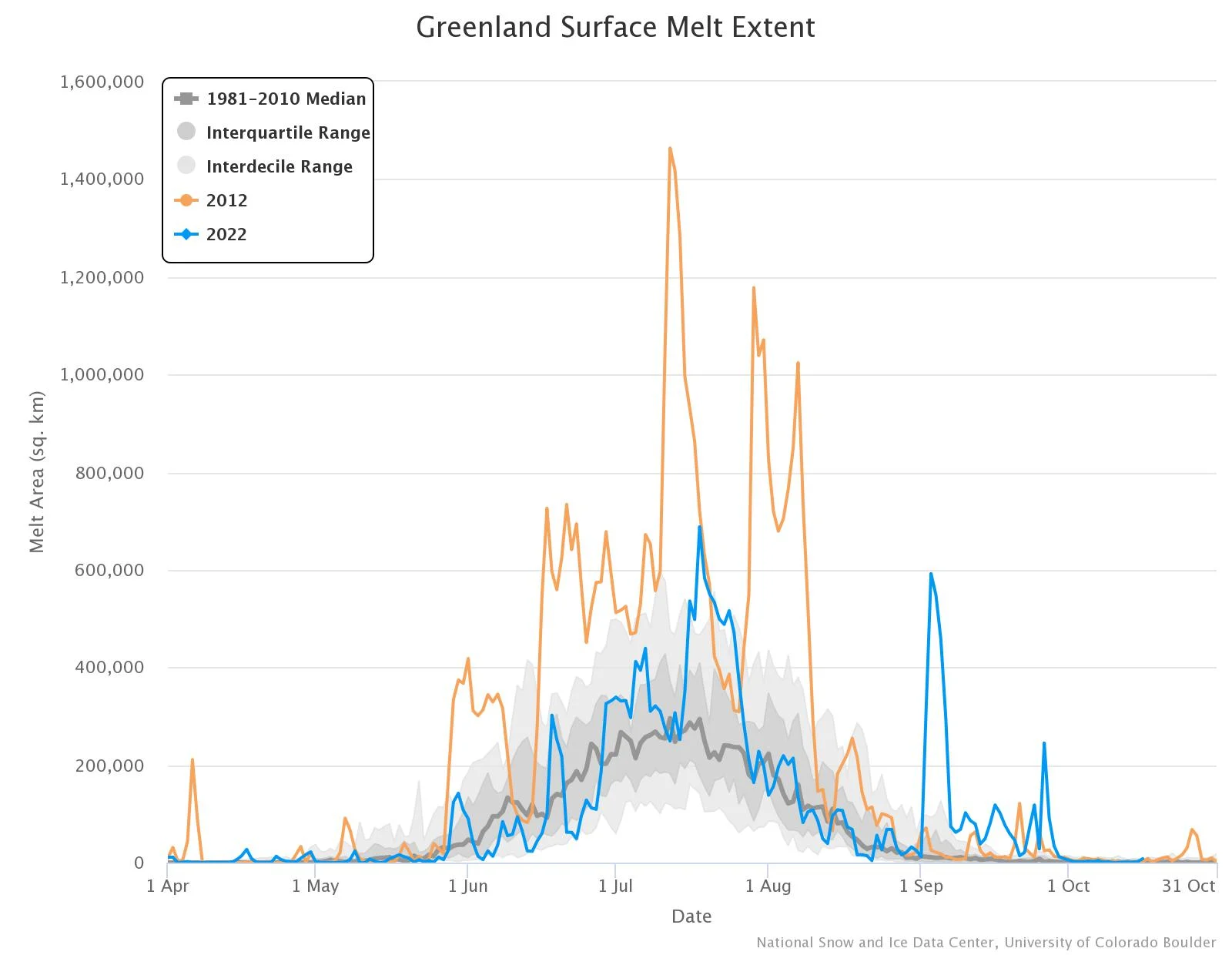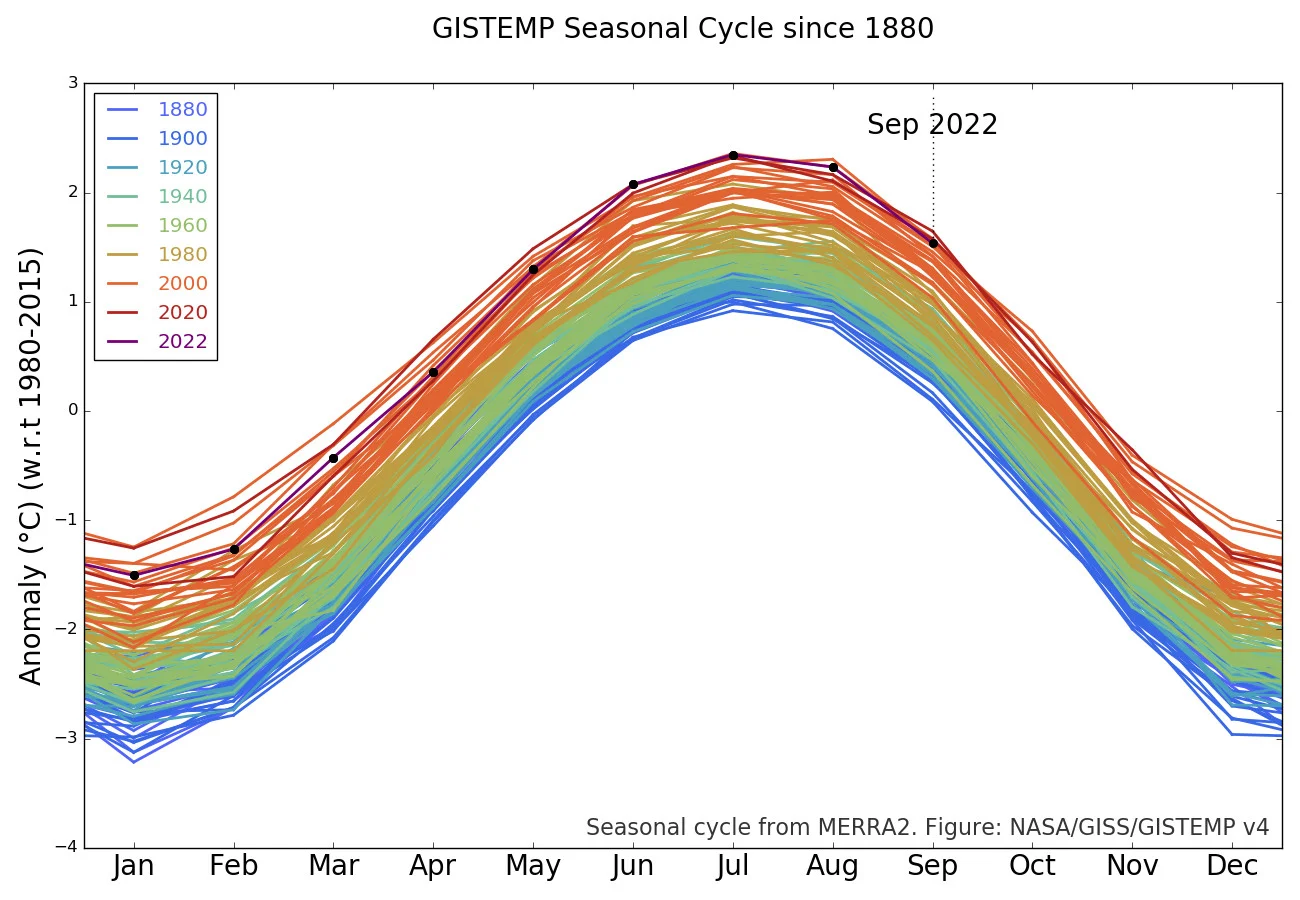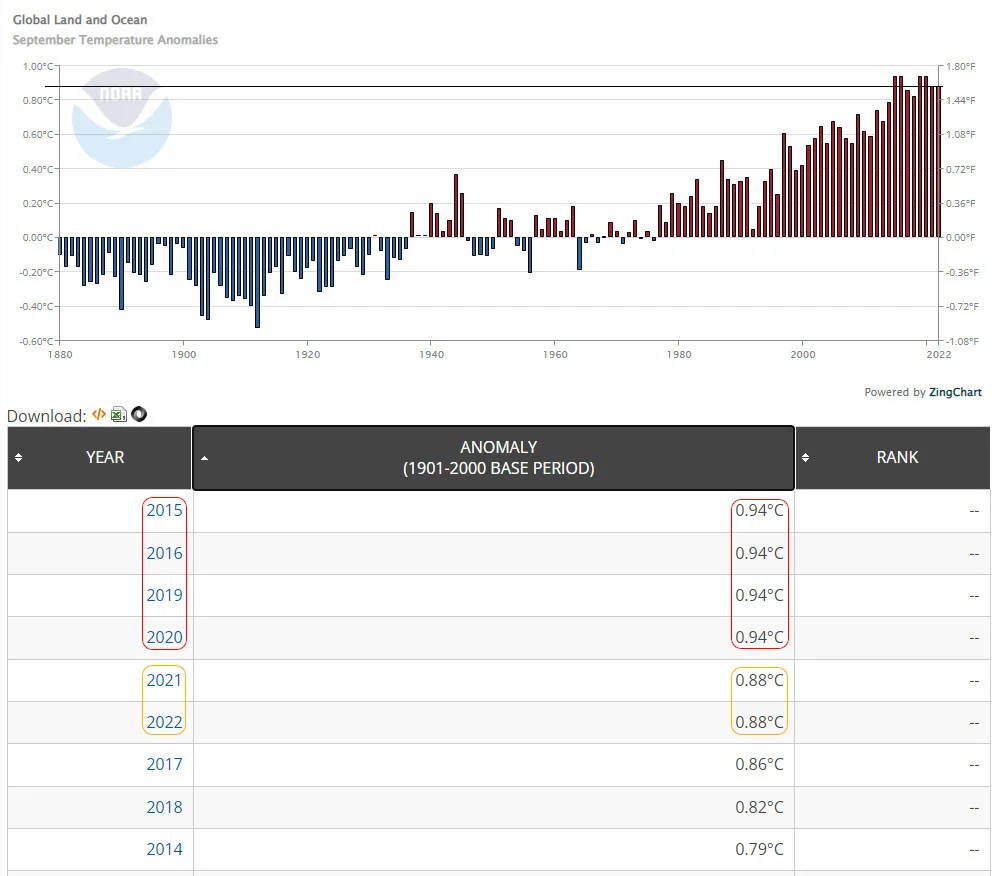
September set new records for heat across North America
Although Greenland had an unusually cool summer, temperatures soared there last month.
While global temperatures ranked in the top six warmest for last month, some regions experienced record heat in September.
There were some notable cool spots around the globe last month, including Europe and Northern Russia, southern Australia, and the equatorial Pacific Ocean. For the rest of the world, the majority experienced "much above normal" temperatures, as NOAA ranks them, but North America stood out.
"North America had its warmest September on record, surpassing the previous record set in 2019 by 0.30°C," NOAA stated in their latest Global Climate Report.

Surface air temperature anomaly for September 2022 relative to the September average for the period 1991-2020. (Copernicus Climate Change Service/ECMWF)
A major contributor to this was Greenland. Following an unusually cool summer, record-breaking temperatures were seen in September at multiple stations along the glacier-covered island’s west coast.
"Greenland had exceptional temperatures that reached more than 8°C above the monthly average in places, the warmest temperatures for September in the record," the Copernicus Climate Change Service wrote in their latest update.
According to the US National Snow and Ice Data Center, an unprecedented late-season heat wave occurred in Greenland during the first week of September. On September 3, at the peak of the event, Summit Station recorded temperatures above the melting point for the very first time in the month of September. On that same day, roughly 600,000 square kilometres of the ice sheet (over one-third of its total area) experienced surface melting.

This plot shows the surface melt area for the Greenland ice sheet. The record year of 2012 is shown in yellow. While the current year (2022, in blue) had a fairly average melt season up until the end of August, an unprecedented event caused over one-third of the ice sheet surface to experience some melting in the first week of September. (NSIDC)
Accompanying this was what the NSIDC called "The Big Runoff", as the meltwater flowed off the ice sheet and poured into the ocean, jumping to a rate of 5.6 billion tons per day on Sep. 2, and peaking on Sep 3., at nearly 12 billion tons per day.
"Such an intense melt and runoff event at this time of the year is exceptional as the energy coming from solar radiation is already very low at the beginning of September," they said.
At least sixth warmest, but there’s a catch…
NASA has now ranked September 2022 as the 4th warmest month of September since 1880, behind 2020, 2021, 2019 and 2016. Europe's Copernicus Climate Change Service backed this up from their records, but had last month tied with September 2016. Based on the Japanese Meteorological Agency's tally, it was the 6th warmest September, and NOAA's records agree with this.

This graph ranks global temperatures against the average monthly temperatures from 1980 to 2015, putting them into perspective for Earth’s seasonal cycles. According to NASA’s records, September 2022 ranked as the fourth hottest month of September, behind 2020, 2021, 2019 and 2016. (NASA GISS)
However, similar to what we saw back in July, these rankings are not as simple (or as potentially optimistic) as they may seem. This is due to ties.
From NOAA, the Septembers of 2015, 2016, 2019, and 2020 were all tied for hottest, at +0.94°C above the 20th century average. Meanwhile, September 2021 and 2022 come next, tied at +0.88°C.
So, rather than the sixth warmest, technically, last month was really tied for the 2nd hottest month of September since 1880.

Global land and ocean temperature anomalies for September 1880 to 2022 are shown in the above graph, with their ranking in the table below. (NOAA NCEI/Scott Sutherland)
Based on NASA's seasonal cycle temperatures, with September 2021 and 2019 tied, last month gets bumped up to 3rd warmest, overall. The JMA has 2021 and 2020 tied for September global temperatures, so in their books, 2022 should technically be 5th warmest.
There's nothing wrong with the ranking systems being used by these agencies. However, while they may give the impression that global warming hasn't been as bad this year, a closer look at the numbers shows otherwise.

